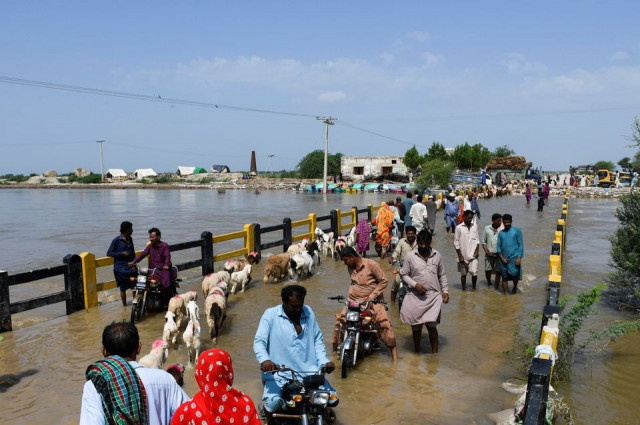410 villages in Badin declared free of open-air defecation
Project across 16 union councils benefits over 163,000 people with new washrooms, clean water, and hygiene facilities.

In a major step toward improving rural sanitation, 410 villages across 16 union councils of Badin district have been declared free of open-air defecation following the construction of washrooms. The initiative has provided thousands of families with safe and private sanitation facilities for the first time, marking a significant improvement in public health and dignity.
Residents attending the concluding ceremony of the project said that access to washrooms had transformed daily life, particularly for women and children, and urged that similar efforts be extended to other deprived areas of the district. Badin, a coastal town severely affected by sea intrusion and loss of agricultural livelihoods, continues to face extreme poverty, making such interventions vital for the well-being of its people.
The three-year sanitation programme was implemented by the Local Health & Development Program (LHDP) with the support of WaterAid. According to project officials, more than 163,000 men and women benefitted from the initiative, which also included the installation of solar-powered water filtration plants in villages, model washrooms in schools and hospitals, and provision of clean drinking water facilities.
At the closing event held in Badin Gymkhana, provincial assembly member Haji Taj Muhammad Mallah and PPP district general secretary Dr. Sajjad Ali Chandio praised the work, stressing the need for its expansion. Rahiman Panhwar, WaterAid's provincial head, noted that while the project had achieved notable success in a short time, further efforts were required to address sanitation needs across Badin's coastal belt.
Drainage is another pressing area of concern in the district. Despite the release of billions of rupees in annual funds, the urban and rural drainage system of Badin has remained dysfunctional for years, raising concerns of urban flooding and crop destruction during monsoon season.
Reports reveal that over 50 drainage channels across Badin city, Matli, Tando Bago, Talhar, and Golarchi have not been cleaned, dredged, or repaired for years. As a result, most of them are now clogged, broken, or completely non-functional, while their embankments have also deteriorated. These include some of the country's largest drainage projects such as the Left Bank Outfall Drain (LBOD), Karo Ghanghro, Mir Wah Talhar Outfall Drain, Ameer Shah drain, Shaikh Manzoor drain, Tando Bago drain, Lowari Sharif drain, Serani drain, and the Old Budha drain passing through Badin city. According to political, social, farmers' and fishermen's groups, billions of rupees are allocated every year for the rehabilitation of the drainage system, but widespread corruption and negligence have diverted these funds into the pockets of irrigation, drainage, and municipal officials. Wherever some work has been carried out, it has been described as substandard and ineffective.
Local sources confirm that, as in previous years, no large-scale cleaning or repair work has been carried out ahead of the monsoon. This raises fears of severe damage to both urban and rural populations, including possible loss of lives, destruction of homes and property, and the submergence of hundreds of thousands of acres of agricultural land, wiping out standing crops.
Residents, political activists, social organisations, and farmer groups have demanded that the Sindh government and relevant authorities immediately launch emergency cleaning and repair operations to avert a looming disaster. They have also appealed to the Chief Justice of Sindh and the Director General of NAB to order a high-level inquiry into the alleged mega corruption involving trillions of rupees allocated in recent years for drainage rehabilitation, and to take strict action against those found responsible.



















COMMENTS
Comments are moderated and generally will be posted if they are on-topic and not abusive.
For more information, please see our Comments FAQ